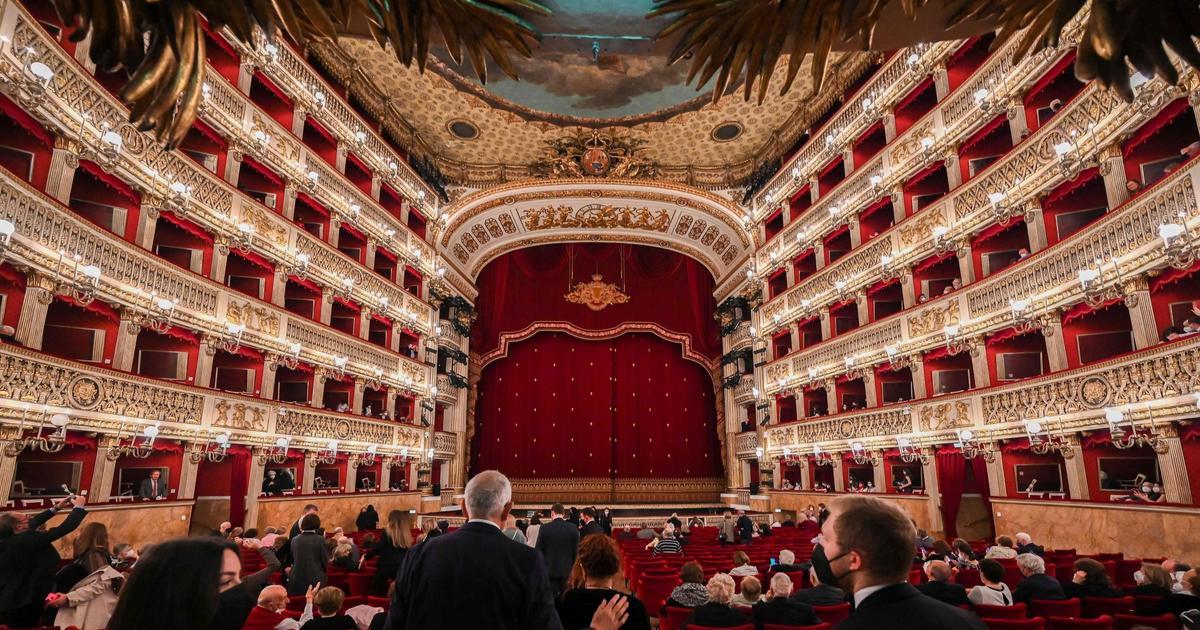From Scarlatti to Verdi, the great Italian opera arias are sung all over the world, even if it is indeed in the setting of the peninsula that this lyrical art was born and flourished, today a candidate for Unesco heritage.
“Opera was born in Italy
,” recalls Frenchman Stéphane Lissner, director since 2020 of the San Carlo Theater in Naples, one of the oldest opera houses still in operation.
To discover
Discover the “Best of the Goncourt Prize” collection
Read alsoEleonora Abbagnato, the Italian at the Paris Opera
After various experiments in musical theater in the 16th century, opera finally saw the light of day around 1600 in Florence, where an academy was founded promoting an innovative association of sung text and music.
The first great opera composer was also Italian: Claudio Monteverdi (1567-1643).
And that's just the beginning.
"If you look at the history of opera in the 18th century, there were 400 creations during this century"
in Naples alone, then capital of a kingdom led by the Bourbons, he marvels during of an interview with AFP under the gold of the royal box of
"his"
theater.
Read also
Genre et opéra
, by Louis Bilodeau: when opera gave itself a genre
But why would Italian opera be more legitimate to enter the intangible heritage of humanity than its French or German counterparts?
For Stéphane Lissner, who has also conducted the prestigious Scala in Milan and the Paris Opera, there is no doubt about the answer:
"the way of singing with this Italian language unquestionably provokes, whether we agree or not, the greatest emotion among opera lovers"
.
This state of mind is also reflected in the perfectly proportioned architecture of the San Carlo, far from the very Second Empire bombast of the Opéra-Garnier in Paris.
The great hall, the beating heart of Naples, exudes a scent of sensual intimacy: red velvet armchairs, shimmering lights, refined gilding, boxes adorned with mirrors...
Read alsoPuccini, “absolutely Italian” composer died 95 years ago
In his dressing room at the San Carlo, the Italian baritone Gabriele Viviani interrupts his vocalizations before a performance of Puccini's
Tosca
to defend the colors of his country:
"Without wanting to take anything away from French and German composers (...) I think that Italian singing has that little something extra that is sensitivity in the expression of emotions
.
A few minutes later, the public rushes into the foyer before taking their seats for the start of the show.
“Italian lyrical singing is an integral part of the cultural heritage of Humanity”
Dario Franceschini, Italian Minister of Culture
In the crowd, an elegant spectator in a kimono concentrates the gaze: Sumiko, a middle-aged Japanese woman who lives in New York, came to Naples especially for the show.
The application of Italian opera to Unesco excites him:
"The emotions that these composers transmit to us are universal, it goes beyond history and borders"
.
Read alsoIn Odessa, the dancers of the Opera in the war: the story of the special correspondent of
Figaro
For the Minister of Culture Dario Franceschini, with this candidacy decided at the end of March and which will be examined by UNESCO at the end of the year,
"Italy aims to have one of its most authentic and original cultural expressions recognized".
.
The minister then did not fail to evoke the poignant images from Ukraine showing the choir of the Odessa opera in the street under the Ukrainian flag and on March 13 intoning the aria
Va,
pensiero
, extracted from
Nabucco
by Verdi.
He saw in it
“one more proof that Italian opera singing is an integral part of the cultural heritage of humanity, which resorts to it in the darkest hours to rediscover light, strength and beauty”
.
Read alsoBenjamin Bernheim or the triumph of opera in VF
The
Va, pensiero
, which was also the anthem of Italian patriots under the Austrian yoke in the 19th century, illustrates well the popular adherence to this art form:
“In the 19th century when you arrived in any Italian city the The whole population was singing opera arias, it was normal!”
observes Stéphane Lissner.
"Italy is apart, the Italian theaters are apart (...) and if you go to the villages, I'm not even talking about cities, you find small theaters!".
The peninsula has no less than sixty opera houses, a world record.
Read alsoDeath of Philippe Boesmans, great enchanter of contemporary opera
The tenor Luciano Pavarotti (1935-2007) also illustrates Italy's carnal relationship with this art: during his lifetime, this giant was venerated as a real rock star, in the same way as singers of popular music.
Here, lyrical music
"is not only reserved for the elite"
, underlines Stéphane Lissner, regretting however that the opera has
"abandoned the popular public, which is no longer able to pay certain prices for seats"
.
A trend that the San Carlo is also trying to curb by reserving places at reduced prices for young audiences.

